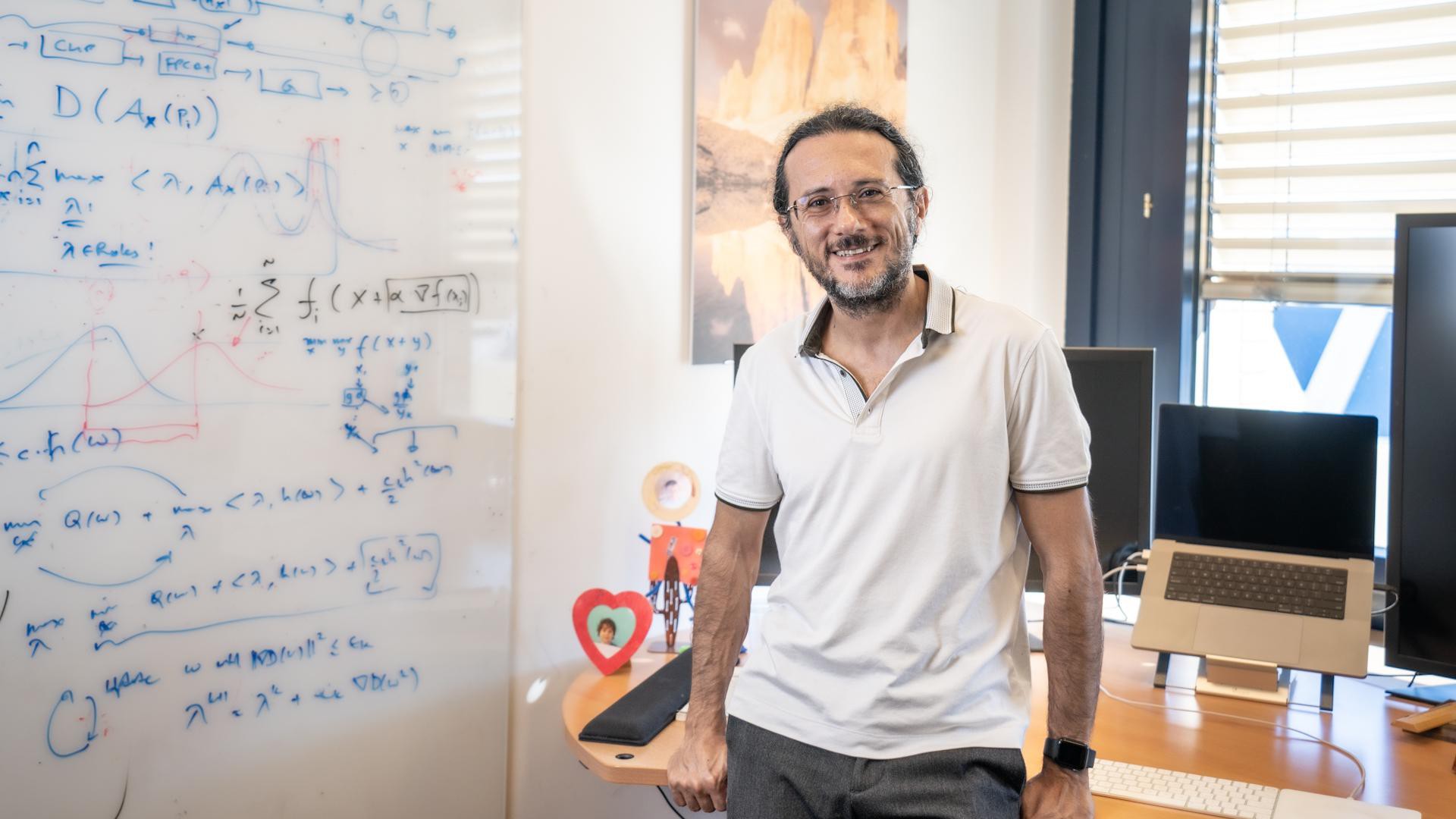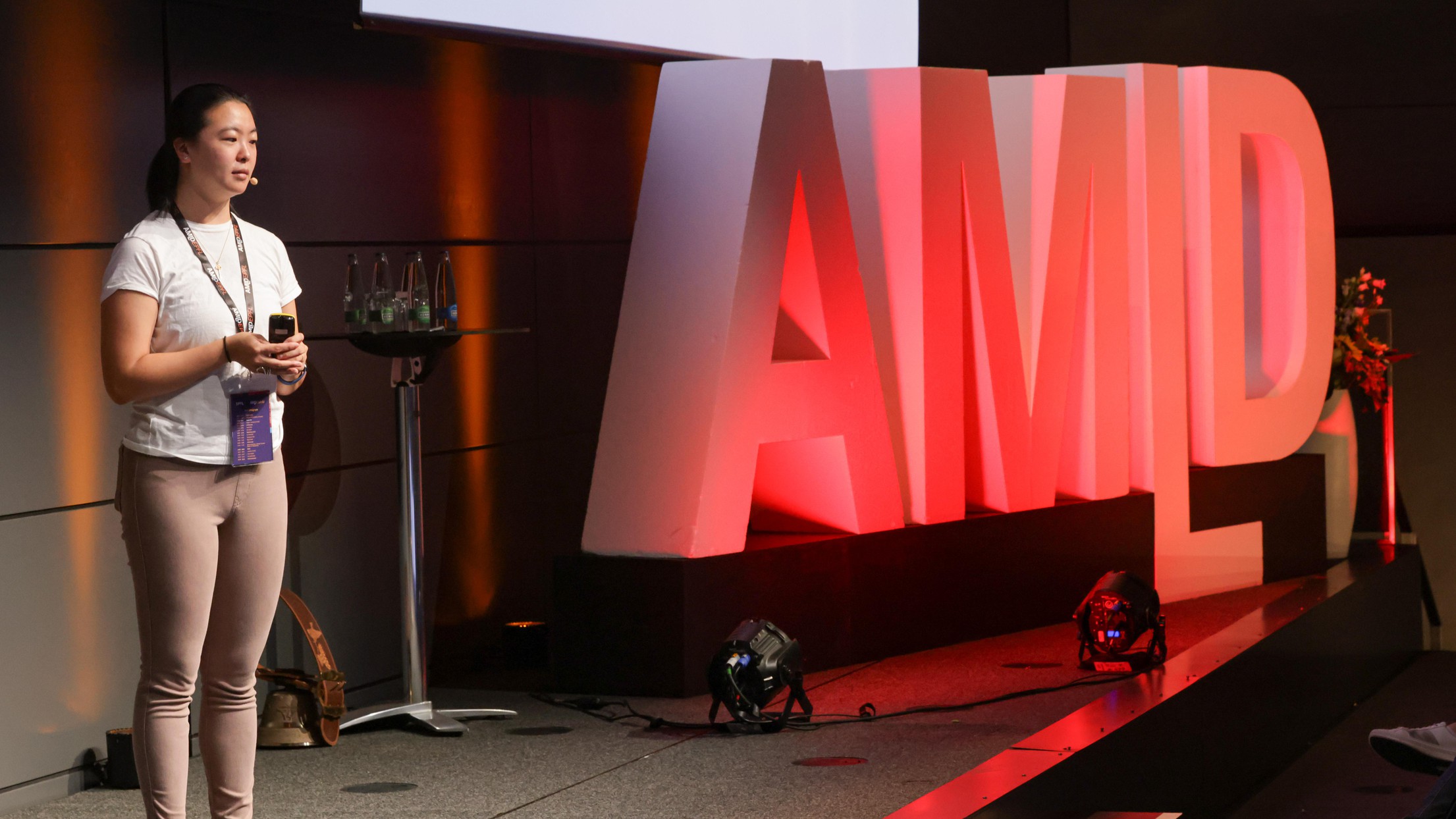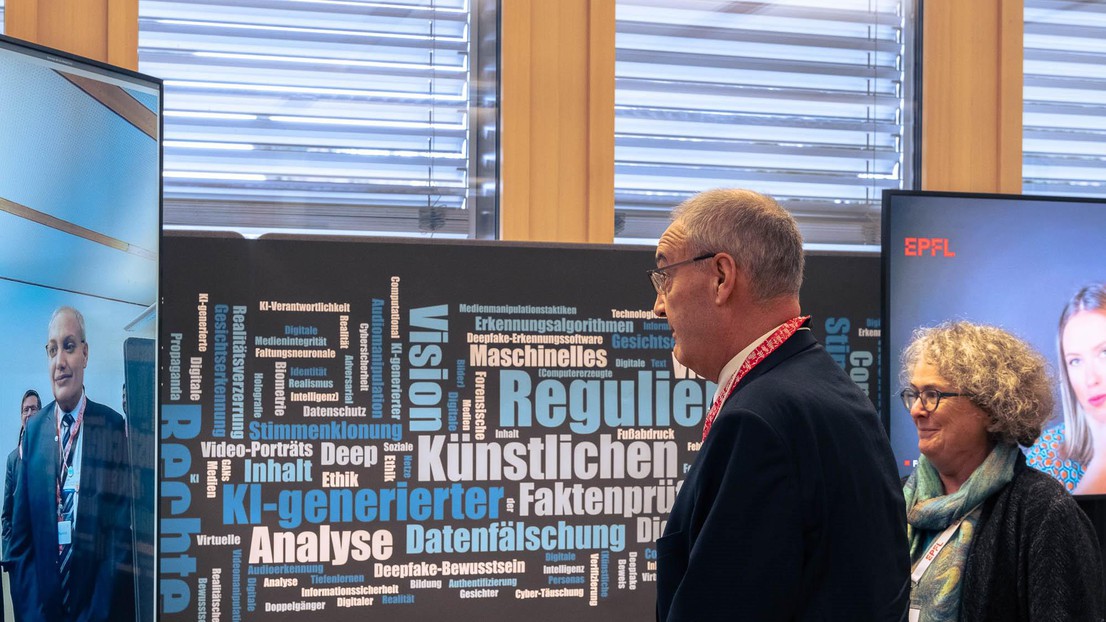News

AI’s new power of persuasion: it can change your mind
15 April, 2024A new EPFL study has demonstrated the persuasive power of Large Language Models, finding that participants debating GPT-4 with access to their personal information were far more likely to change…

How the brain senses body position and movement
2 April, 2024Researchers at EPFL use neural networks to study proprioception, the sense the brain uses to “know” the body’s movement and position.

Does Artificial Intelligence work in English?
14 March, 2024EPFL researchers have shown that large language models primarily trained on English text seem to use English internally, even when they are prompted in another language. As AI increasingly runs…

Joint initiative for trustworthy AI
6 March, 2024ETH Zurich and EPFL are launching the “Swiss AI Initiative”, whose purpose is to position Switzerland as a leading global hub for the development and implementation of transparent and reliable…

A new EPFL tool shows the decline of political tone in the US
6 March, 2024A new EPFL developed tool, Quotebank, has helped researchers provide the first large-scale data-driven evidence of a drastic shift towards a more negative political tone beginning at the start of Donald…

Enhancing AI robustness for more secure and reliable systems
6 March, 2024Researchers at EPFL have uncovered a fundamental flaw in the training of machine learning systems and elaborated a new formulation for strengthening them against adversarial attacks.

Making AI work for everyone
6 March, 2024Platforms like ChatGPT are already changing the world. From healthcare to the arts and the way we work, how we can ensure AI and Machine Learning benefit all of society?…

Charting new paths in AI learning
28 February, 2024Physicists at EPFL explore different AI learning methods, which can lead to smarter and more efficient models.

Anything-in-anything-out: a new modular AI model
26 February, 2024Researchers at EPFL have developed a new, uniquely modular machine learning model for flexible decision-making. It is able to input any mode of text, video, image, sound, and time-series and…

GPT-3 transforms chemical research
7 February, 2024Scientists at EPFL demonstrate how GPT-3 can transform chemical analysis, making it faster and more user-friendly.

AI and deepfakes on show at Davos
24 January, 2024Among the global powerbrokers at this year’s annual World Economic Forum in Davos many were interested in the fast-moving opportunities and challenges of artificial intelligence and EPFL was a key…

AI in the fight against global inequality
17 January, 2024The Federal Department of Foreign Affairs (FDFA), EPFL and ETH Zurich, in collaboration with their partners, are launching the International Computation and AI Network (ICAIN) at the World Economic Forum (WEF)…

AI unlocks new insights in neurodegenerative disease research
12 December, 2023EPFL researchers develop an AI-driven, label-free method for studying protein aggregates, offering new perspectives in neurodegenerative disease research.